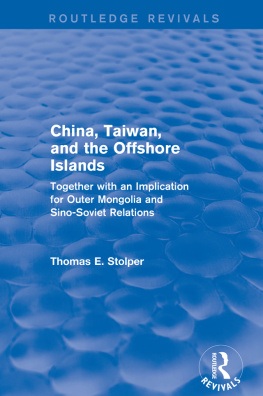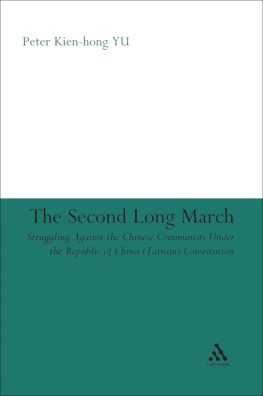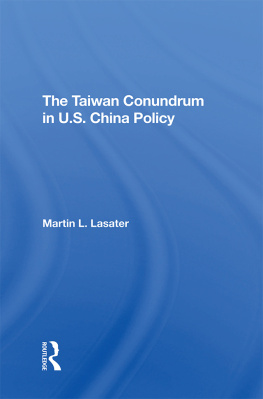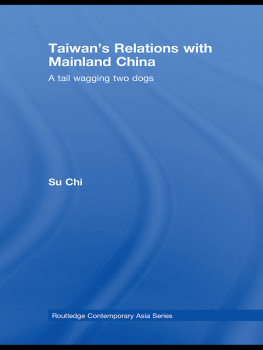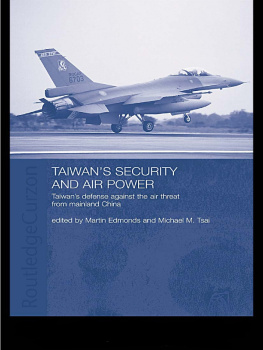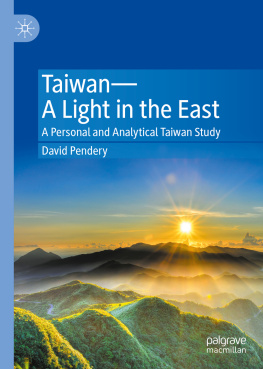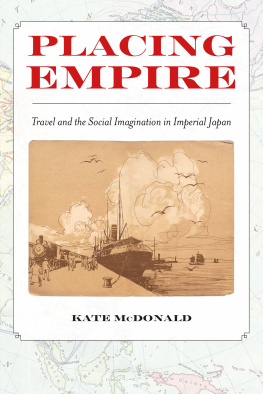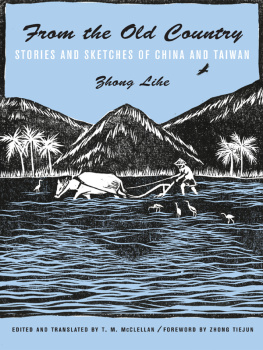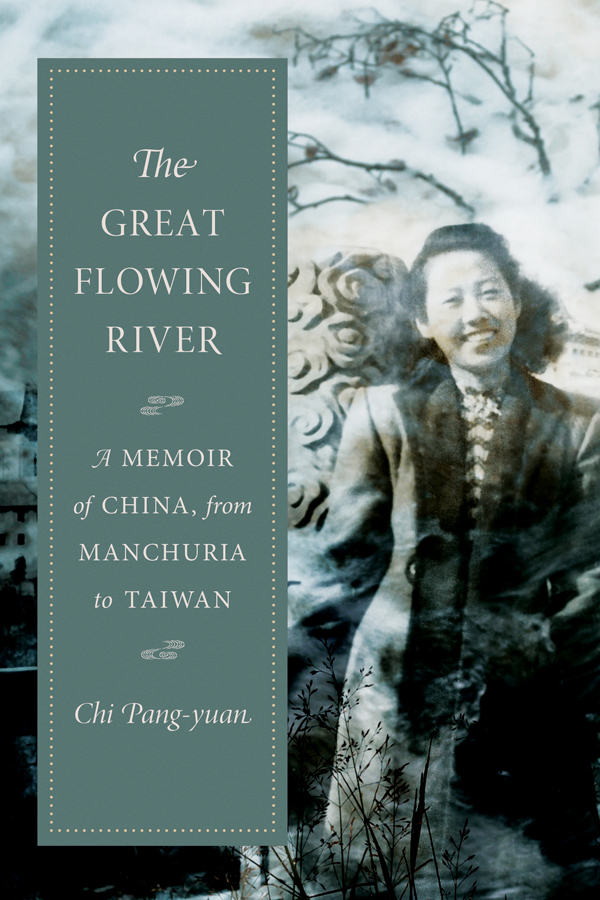Contents
Guide
Pagebreaks of the print version
The
GREAT
FLOWING
RIVER
The
GREAT
FLOWING
RIVER
A MEMOIR of CHINA, fro m MANCHURIA to TAIWAN
C hi P ang-yua n
EDITED AND TRANSLATED
BY JOHN BALCOM
WITH AN INTRODUCTION BY
DAVID DER-WEI WANG
Columbia University Press
New York

Columbia University Press
Publishers Since 1893
New York Chichester, West Sussex
cup.columbia.edu
Copyright 2018 Chi Pang-yuan
All rights reserved
E-ISBN 978-0-231-54781-9
Library of Congress Cataloging-in-Publication Data
Names: Qi, Bangyuan | Balcom, John, editor, translator.
Title: The great flowing river : a memoir of China, from Manchuria to Taiwan / Chi Pang-yuan ; edited and translated by John Balcom with an introduction by David Der-wei Wang.
Other titles: Ju liu he. English
Description: New York : Columbia University Press, 2018. | Includes index.
Identifiers: LCCN 2017055946 (print) | LCCN 2018013656 (ebook) | ISBN 9780231188401 (cloth : alk. paper)
Subjects: LCSH: Qi, Bangyuan. | Sino-Japanese War, 19371945. | ChinaHistoryCivil War, 19451949 | ChinaHistory1949 | TaiwanHistory1945 | Authors, Chinese20th centuryBiography.
Classification: LCC PL2892.3.B36 (ebook) | LCC PL2892.3.B36 Z4613 2018 (print) | DDC 895.18/5103 [B]dc23
LC record available at https://lccn.loc.gov/2017055946
A Columbia University Press E-book.
CUP would be pleased to hear about your reading experience with this e-book at .
Cover design: Lisa Hamm
Cover image: (digital composite) Photograph of Chi Pang-yuan provided by the author and river photograph plainpicture/Kati Kakamo
Contents
CHI PANG-YUAN

CHI PANG-YUAN
S ince I came to Taiwan in 1947, the memories of the twenty-four years of my life lived in war-torn China have haunted me like a second reality. I came of age during a historic time when my country was united to resist the Japanese invasion.
The twentieth century is not too long ago. Gigantic human griefs were buried with it. Its indescribable sufferings have lingered for three generations now. There still are some middle-aged grandchildren looking for the graves or bones of the missing soldiers. After the 1949 national divide, remembrances were mostly smothered; the blood of the martyrs and the tears of the exiled have gradually become untraceable.
All these seventy years I spent my time reading and teaching, trying to push the overbearing nostalgia to the corner of my mind, but my heart rebels. It still bears the invisible scars of war. My soul sometimes still trembles with the fathomless sorrows of a lifelong exile.
When I finally determined to write down my memories to ease my heart, it was quite late. I was convinced that I could only start from the limited scope of my own experience, with my lifelong respect and tribute to those who fought so that I might live. I had to write the book for the millions who died in the war and the tens of millions who became exiles, like my own parents. I cannot leave this world without commemorating the many unsung heroes who lost their lives for an unprecedented national cause. Through them, I saw how the human spirit, with fortitude and grace, can soar despite the darkness.
How fortunate I was when my young friends Shan Te-hsing, Chien Chen, and Li Huei-mian miraculously appeared as angels and extended their timely encouragement and actual help. Without their steady conviction and cheer, I might have escaped again when things looked too overwhelming for me to handle.
I am deeply grateful to Professor David Der-wei Wang for being my tireless proponent and the best taskmaster one could ask for. Without his avid support and direction, the English version of my book would have been interminably delayed. Based on his profound understanding of the background of our long exile, his introduction to this book is the most lucid and sympathetic guide for readers fortunate to have been born during the peaceful second half of the twentieth century.
I must also commend my translator, Mr. John Balcom, for giving my story the equivalent of an English voice. I am aware that translation is an interpretative act as well as a creative one, and he has done a fine job on both accounts.
My heartfelt thanks also go out to my dear friends Leung Yanwing and Nancy Du for helping me review the English manuscript. I would also like to thank Ms. Jennifer Crewe, Christine Dunbar, and Leslie Kriesel of Columbia University Press for their editorial expertise.
Since my book was published in 2009 in Chinese, letters from readers all over the world have flooded my desk, telling me that I have also told their story. These emotional letters, many handwritten in shaky script, describe in great detail places I should have known as a child in northwest China (though I never had a chance to go back to my homeland). Some talk of the people we knew in common and their cherished memory. Together our tales become a tapestry of interconnected destinies and kinship. As I pore over these familiar stories line by line from people I have never met, I feel the veil of sorrow I have carried all these years begin to lift. It is a homecoming of sorts.
Chi Pang-yuan
Spring 2018
P rofessor Chi Pang-yuans autobiography stands out among a number of recent popular autobiographies from Taiwan. Her personal narrative provides a fascinating overview of wartime China and postwar Taiwan. For me personally the book has additional importance because I have known and worked with the author for what is now decades.
I would like to thank Chi Pang-yuan for her assistance throughout the long translation and editing process. Chapters 8, 9, and 10 of the original book have been abridged, primarily in accordance with the recommendations made by Professor Chi, and combined to form of this translation. It was felt that the abridged passages were often too detailed with the minutiae of government, politics, academia, and other areas to be of much interest to readers outside Taiwan.
A number of other people who have been involved in the project over the last few years also deserve mention. I am grateful to David Wang for his support for this project and for the introduction he has provided. Peter Bernstein has also been instrumental in moving the project forward.
Several chapters of this translation originally appear in Renditions , the prestigious ChineseEnglish translation journal published by the Research Centre for Translation at the Chinese University of Hong Kong, which I am pleased to see reprinted here. I wish to express my sincere thanks to Ted Huters and the folks at Renditions for their invaluable input.
In Taiwan I would like to thank Nancy Du and Yanwing Leung, who read several of the chapters and provided comments and suggestions.
At Columbia University Press, I wish to thank Christine Dunbar for shepherding this book through to publication. Leslie Kriesel, my editor, also deserves thanks for another fine job with her usual keen eye and attention to detail.
Last but not least, I wish to thank my wife, Yingtsih, for her assistance and support.
John Balcom



